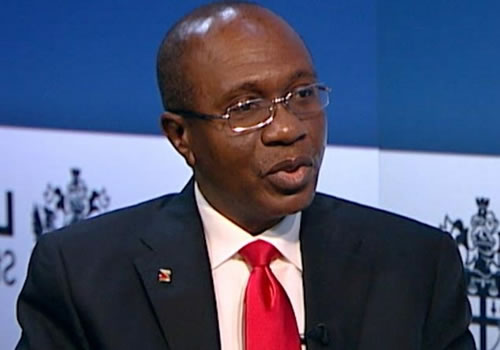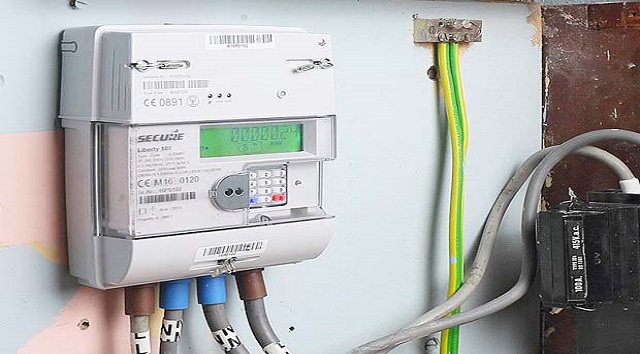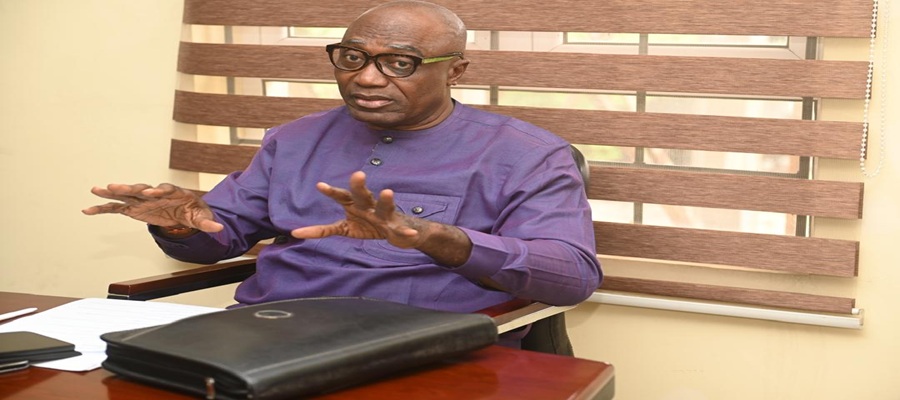General News
Nigeria Monetary Policy Makers in Tight Spot as Stagflation Takes Hold

Monetary policymakers are in a tough spot after COVID-19 claimed the economy as a victim of lockdowns and reduced activity. The central bank has to take on a therapeutic role to nurse the country back to health. Are the available remedies enough to save the patient or have decades of over-reliance on the cover-all solution of strong oil revenues blunted their effectiveness?
CBN unlikely to cut rates
In its January decision, the Central Bank of Nigeria (CBN) left its key interest rate unchanged at 11.5 percent, citing the pursuit of price stability. While other central banks adopted looser monetary policy to defend their economies against COVID-19, the CBN simply doesn’t have enough breathing room because it is dealing with stagflation marked by price inflation in the essential needs sector and a loss of productivity at the same time.
The CBN shows decisiveness and determination to reverse the stagflation and loss of output trends, according to its January meeting statement. Even amid the headwinds, it’s encouraging that the CBN realises the problem and is taking measures to handle it.
Nigeria faces severe stagflation
The economic consequences of COVID-19 are the environment of stagflation with rising inflation and a recessionary economy, said the CBN. Stagflation is characterised by price rises which occur when there is an increase in inflation and at the same time an increase in unemployment and lower economic output. Meanwhile, import restrictions announced by the central bank to help local producers have added to fuel inflation which hit a three-year high in December.
Traditional monetary policy is hard-pressed to find a solution to both stagflation and a depressed economy at the same time. Lowering interest rates is one option but in Nigeria’s case might lead to an increase in inflation which is well above the target rate of six to nine percent and make things worse.
The remedy for stagflation depends on treating the root causes. These are the extensive pandemic lockdowns, chronically high inflation, and uncertainties in the oil markets feeding into reduced output and fiscal risks. While most of the causes are likely to pass once the pandemic is under control, none of them appears to have an early ending at the time of writing. Vaccination programmes take time to be effective and meanwhile demand for oil remains at relatively low levels because of travel restrictions.
Economic recession
Nigeria struggles with a recession with the threat of higher unemployment and poverty rates exacerbated by the public health threat from COVID-19. The recession impacts the buying power of the Naira and comes at a bad time after the central bank’s efforts to manage the currency and stoke economic growth in recent years rather than just focusing on keeping inflation in its target band of six to nine percent.
Monetary authorities had to devalue the Naira twice last year after a shortage of dollars pushed up import prices and increased the gap between the official and black-market exchange rates.
Unconventional tools of growth
In January, the CBN disbursed N20 trillion to cushion the pandemic effects and support the signs of improvement which came thanks to easing lockdown restrictions and more promising Oil prices. The CBN said that N192.64 billion was disbursed to households and small businesses from the COVID-19 Targeted Credit Facility.
The deployment of funds directly to their targets is certainly a significant support for the economy but the second wave of infections and ongoing uncertainty about the vaccine rollout threatens to sabotage any meaningful recovery, at least in the short term.
Too early to tighten?
The coronavirus is the dovish factor in the CBN’s price stability mandate and the central bank is likely to adopt a wait-and-see approach for the foreseeable future. Tightening monetary policy this year may be too soon and make Nigeria an outlier among major economies expected to ease or hold rates at record lows to breathe new life into their economies.
Other than direct funding, the CBN may end up using additional unconventional tools to revive growth including tweaking the loan to deposit ratio, the liquidity ratio, and cash reserve ratio. The questions are whether these will be enough to save the patient from more financial pain and what will be the long-term effects on Nigeria’s economic health.
General News
Indigenous Firm Deploys 400,000 Smart Electricity Meters in 2025

MOJEC International Limited has revealed that it deployed over 400,000 smart meters nationwide in 2025, representing a significant year-on-year growth for the indigenous smart meter manufacturer.

This performance reflected a 33.3 percent increase over the 300,000 meters deployed in 2024, highlighting the scale and acceleration of MOJEC’s metering operations.
Chantelle Abdul, group managing director, attributed the sustained impact to deliberate investments in infrastructure, people, and technology.
“MOJEC operates two state-of-the-art meter production facilities with a combined installed capacity of up to five million meters annually. This scale enables us not just to meet current demand, but to support Nigeria’s long-term metering and energy efficiency goals,” she said.
She further noted that MOJEC’s expansive installer ecosystem, comprising over 5,000 trained professionals nationwide, remains a critical enabler of its delivery advantage, ensuring speed, quality, and compliance across diverse terrains and markets.
The company stated that the deployment surge reflected growing confidence by Distribution Companies (DisCos) and sector stakeholders in MOJEC’s technical capacity, delivery speed, and end-to-end metering solutions.
According to Monday Ubogu, MOJEC’s head of installation, the scale and consistency of delivery set the company apart.
“Within the first three quarters of the year, MOJEC completed about 300,000 installations, accounting for roughly 40 percent of total installations nationwide during that period.
“The momentum continued into the final quarter with an additional 150,000 meters deployed, highlighting our operational depth and nationwide reach,” he said.
Ubogu added that MOJEC’s performance builds on decades of sector engagement, spanning key national metering initiatives including CAPMI, MAF, Vendor Financing, MAP Phases I & II, and NMMP 0, with the company having deployed nearly four million meters since the privatisation of NESI.
According to the company, a substantial portion of the deployment was driven by MOJEC Meter Asset Management Company (M3AC), the Group’s asset management subsidiary, which accounted for about 350,000 installations.
General News
Globacom Donates ₦1Bn to Lagos State Security Trust Fund

In its bid to contribute its quota to the consolidation of security in Nigeria’s commercial capital, Lagos, telecommunications giant, Globacom, has thrown its weight behind the Lagos State Security Trust Fund (LSSTF) with a donation of ₦1 billion.

The generous donation was announced at a Private Sector Breakfast Meeting with CEOs, convened at the instance of the Executive Governor of Lagos State, Mr Babajide Sanwo-Olu, on Friday, January 30, 2026 and shows the company’s commitment to fostering public safety which would in turn, culminate in enhanced prosperity and social re-engineering in the state.
The donation, which is the biggest private-sector intervention from the telecommunications sector to the Fund in recent years, again shows that Globacom is a responsible, responsive and people-oriented corporate citizen.
Globacom disclosed that the intervention emphasized deeper collaboration between government and the state’s business community especially in relation to security, innovation and economic resilience—an agenda which the digital solutions company has unabashedly supported through sustained social investments.
The Executive Secretary/CEO of the Fund, Dr. Ayo Ogunsan, in his display of appreciation described Globacom’s largesse as “a powerful demonstration of corporate citizenship and a strategic investment in the stability of Lagos State,” saying since LSSTF was established to bridge funding gaps in security infrastructure, it desired voluntary contributions from corporate bodies and well-meaning collaborators.
Dr. Ogunsan promised that the ₦1 billion donation will significantly enhance the Fund’s capacity to address critical priorities for 2026, including multipurpose security helicopters and drones, Armoured Personnel Carriers (APCs), water cannons, digital communication equipment and Smart CCTV systems. These assets, he added, were germane to proactive policing, rapid response and intelligence-led operations across the state.
He therefore encouraged Lagosians to support businesses that invest in the safety and development of the state, saying, “When companies step forward to secure our environment, residents should reciprocate by patronizing them. Their support directly impacts the protection of lives, property and economic activity.”
A statement from Globacom explained that the donation was an expression of the company’s staunch belief in Nigeria’s future. “At Globacom, we see security not as a government burden alone, but as a shared responsibility. When people feel safe, enterprise grows, creativity flourishes and hope becomes practical. Our support for the LSSTF is about protecting the everyday dreams of millions of Lagosians,” he noted.
With this donation to the LSSTF, Globacom has furthered its tradition of investing directly in the conditions like safety, confidence and stability which help commerce to thrive. Consequent on the support, LSSTF is gingered to raise the bar of security thereby concretizing Lagos State’s position as Nigeria’s safest and most vibrant commercial hub.
This recent financial intervention from Globacom is in tandem with its avowed commitment to social responsibility that is practical, timely, scalable and aligned with national priorities.
The company’s interventions in the past decades have spanned relief efforts for flood-affected communities, support for displaced persons, advanced youth skills through structured training programmes, and investments in education, culture and digital inclusion.
General News
WIEG to host Nigeria’s first International Investment Summit in Lagos

World International Economic Group (WIEG) Nigeria has announced plans to host its inaugural International Investment Summit on Feb. 25 and 26 at the Four Points by Sheraton Hotel, Oniru, Victoria Island, Lagos.

WIEG
The summit, themed “Nigeria’s Next Frontier: Unlocking Sustainable Investments for Economic Transformation,” is aimed at connecting investment-ready Nigerian enterprises with global capital while addressing long-standing challenges facing micro, small and medium enterprises (MSMEs), cooperatives and women-led businesses.
Speaking at a pre-summit press conference on Friday at Compact Communications Ltd., GRA Ikeja, Lagos, Mr. Bassey Essien, WIEG’s Project & Event Consultant said the summit would serve as a structured platform linking policy, finance and enterprise growth.
Essien identified limited access to structured funding, poor investment readiness and weak documentation as major barriers confronting Nigerian businesses, despite the availability of domestic and international capital.
“Enterprises that succeed understand the importance of preparation. Some invest as much as N200 million in professional feasibility studies to meet the standards of banks and institutions such as the African Development Bank. That level of preparation enables access to collateral-free funding,” he said.
According to him, weak policy continuity, inadequate post-intervention monitoring and fragmented regulatory frameworks have continued to undermine business growth in the country.
“Policies often change with governments, and there is little tracking after interventions. More importantly, many businesses are not prepared in ways financiers require,” Essien noted.
He explained that the summit would convene policymakers, investors, development finance institutions and pre-screened MSMEs and SMEs operating in priority sectors, including the creative industry, agriculture, energy transition, finance and aviation.
Essien described the creative sector as a major contributor to Nigeria’s economy, accounting for about 2.5 per cent of the Gross Domestic Product, but said weak financing structures, piracy and poor intellectual property (IP) protection had limited its growth.
Highlighting the summit programme, he said Day One would feature conferences on macroeconomic issues, policy reforms and enterprise growth, while Day Two would focus on sector-specific deal-making roundtables.
“These deal rooms will be organised by sector — from aviation maintenance, repair and overhaul (MRO) to renewable energy — with lawyers, financiers and policymakers present to fast-track transactions,” he said.
Essien added that the Nigerian Investment Promotion Commission (NIPC) would be present to ensure post-event monitoring and tracking of investment deals concluded during the summit.
He disclosed that the creative economy segment would be supported through partnerships with the Association of Movie Producers of Nigeria (AMP) and financial institutions to fund viable projects in Nollywood, music and fashion.
“Intellectual property regularisation is critical. Once ideas are properly documented and protected, investors gain confidence,” he said.
On energy and aviation, Essien said the summit would spotlight renewable energy solutions to reduce dependence on generators and promote the establishment of commercial MRO facilities to curb the high cost of aircraft maintenance abroad.
He also announced the participation of B Lab Africa, a U.S.-certified organisation focused on environmental, social and governance (ESG), diversity, equity and inclusivity standards, noting that the initiative would help small businesses improve governance and access global funding.
Essien revealed that investment commitments estimated at about 500 million dollars were expected to emerge from the summit.
“This is a private-sector-led, non-partisan initiative that places no financial burden on government. It is focused on job creation, empowering women-owned enterprises and improving investor confidence through transparent and secure processes,” he said.
He urged Nigerian entrepreneurs and SMEs to prioritise proper documentation, professional advisory services and IP protection to position themselves for sustainable growth.
“We are creating a structured pathway from policy to capital to enterprise growth,” Essien added.

 General News3 days ago
General News3 days agoGlobacom Donates ₦1Bn to Lagos State Security Trust Fund

 Telecom3 days ago
Telecom3 days agoAirtel Nigeria Commits to Upgrade of its Network Infrastructure for Improved Quality of Service

 E-Business3 days ago
E-Business3 days agoPwC Reveals AI Scaling Gap Slows Africa’s Digital Transformation

 E-Financial3 days ago
E-Financial3 days agoEcobank Profit Jumps 29 Percent to N950Bn

 News3 days ago
News3 days agoCIoD, NIPSS Partner to Deepen Governance, Leadership Standards

 News3 days ago
News3 days agoNRS Chairman Outlines Ways Nigeria can Move from Potential to Economic Prosperity

 News3 days ago
News3 days agoTrump Says He Made no Mistake Sharing Video Depicting Obamas as Apes

 News3 days ago
News3 days agoOrya, Ex-NEXIM MD Jailed 490 Years for N2.4Bn Fraud























